We all want to find it…
THE MEGALODON!
Megalodonning: is known as the act of hunting for the whopper-sized fossilized teeth from the extinct great white shark, C Megalodon.
Megalodonning at Westmoreland State Park on the Potomac River at Fossil Beach
What is a Megalodon?
Megalodon (/?m???l?d?n/ meg-?-l?-don; meaning "big tooth", from Ancient Greek: μ?γας (megas) "big, mighty" and ?δo?ς (odoús), "tooth"—whose stem is odont-, as seen in the genitive case form ?δ?ντος, odóntos) is an extinct species of shark that lived approximately 15.9 to 2.6 million years ago, during the Cenozoic Era (middle Miocene to end of Pliocene).
Fish and whales fear me
Megalodon is regarded as one of the largest and most powerful predators in vertebrate history, and likely had a profound impact on the structure of marine communities. Fossil remains suggest that this giant shark reached a maximum length of 18 meters (59 ft). The speculate that the giant Megalodon Shark may still be roaming the depths of the ocean.
Why are shark fossils rare?
Shark fossils are extremely rare because sharks have no bones, only cartilage, which does not fossilize well. Their teeth, however, are very hard. Their teeth are made of a bone-like material coated with hard enamel and they fossilize very well. Megalodon teeth are similar to those of the Great White Shark, but are much bigger, thicker, and with finer serrations.
Megalodonning is year-round fun
Fossil hunting is a year-round fun activity at a select few event database for the next fossil frenzy.
The fossils you will see vary from our state fossil "scallop to Mako or Thresher teeth to the jackpot "the Megalodon". Low tide is a good time to go Megalodonning. No digging or climbing on the cliffs is allowed, but hunting along the shoreline at low-tide and after a storm may uncover some great finds.
Any sharks' teeth you find you can keep!
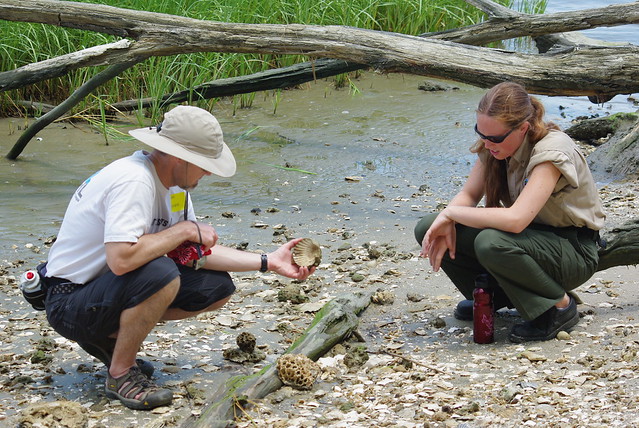
Hunting for the extinct great white shark tooth "the Megalodon" amongst other fossils

Seining, Fossil Hunting, Paddling on the York River is treasure hunting fun for everyone
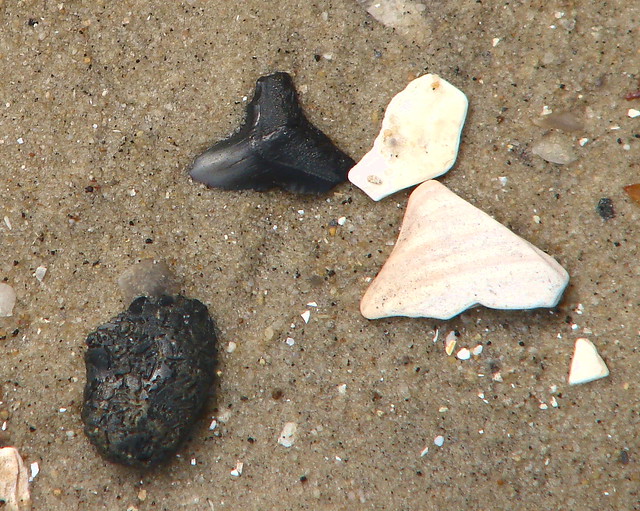
Megalodon found at Chippokes Plantation State Park (this park is often called "the ocean graveyard" by fossil hunters)

Discoveries found at Fossil Beach during low tide at York River State Park
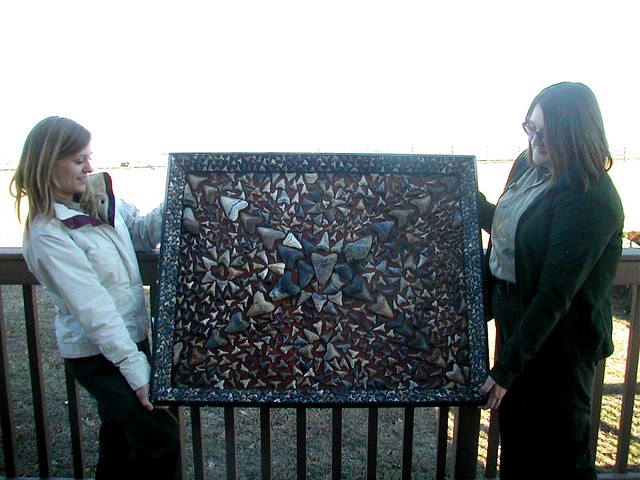
Donated sharks tooth collection by Mrs Diana Brown in honor of her husband
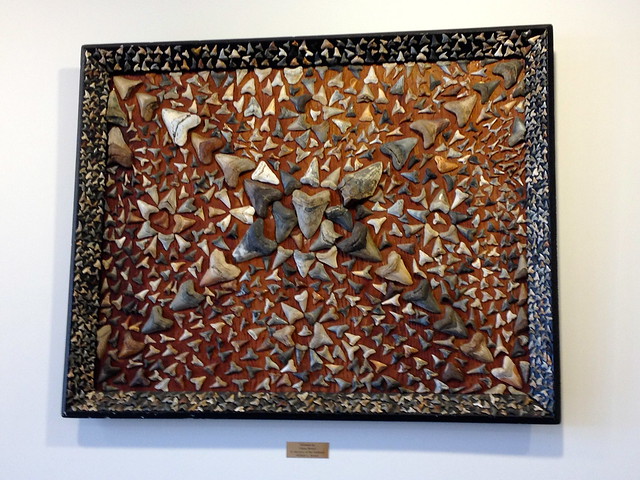
The collection of fossilized sharks' teeth found at and near Westmoreland State Park – notice the frame is also covered in them – but look what takes center stage the great Megalodon!

Using a sieve (borrowed from the park office) to hunt sharks' teeth at Westmoreland State Park

If a Megalodon were here we would surely see it!

Fossil hunters come in all shapes and sizes and half the adventure is getting dirty
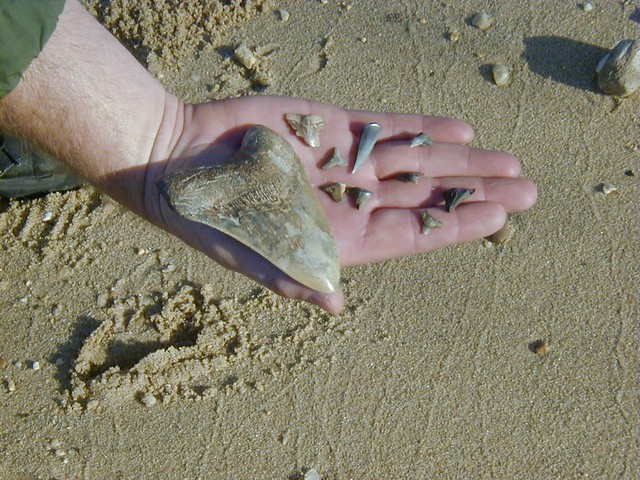
A handful variety of sharks' teeth found at Westmoreland State Park
While fossils may be found at many Virginia State Parks, here are the top three choicesI recommend for your next Megalodonning adventure:
Westmoreland State Parkon the Potomac River
York River State Parkon the York River
Chippokes Plantation State Parkon the James River
